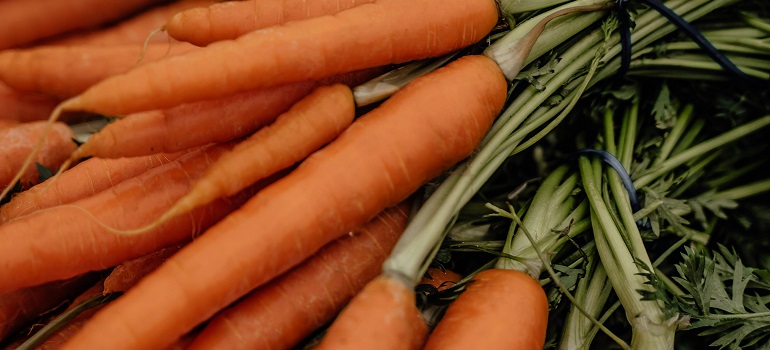Get Your Free Estimate Now
"*" indicates required fields
Bradford, Ontario, presents an appealing destination for those looking to embark on a farming career. Known for its rich agricultural heritage, the region boasts over 1,500 farms, covering more than 250,000 acres of farmland, according to the latest agricultural census. This area is not just about the scale of farming but also about the variety of opportunities it offers, from large-scale cash crops to small organic operations that thrive in this fertile environment. With a supportive local government and a community that values sustainable development, Bradford is a place where new farmers can truly grow roots. For those moving to the area, aspiring farmers moving to Bardford should be wondering how to find movers near me to help them with the relocation.
Soil and climate specifics for farming in Bradford
The region’s soil is predominantly classified as Luvisolic and Podzolic types, which are well-suited for a variety of crops including grains, vegetables, and fruit trees. The Canadian Agricultural Soil Information Service (CASIS) provides detailed maps that aspiring farmers can use to analyze the specific soil characteristics of their chosen plots.

Bradford experiences a temperate climate with an average growing season of 150 days, which typically runs from late April to late September. This period is characterized by mild to warm temperatures, which is ideal for a wide range of crops, particularly soybeans, corn, and market garden vegetables. If you are looking to relocate your farming equipment or supplies, consider utilizing specialized moving services in Toronto for efficient and safe transport.
Zoning laws aspiring farmers moving to Bardford should be aware of
Understanding Bradford’s zoning laws is critical for any aspiring farmer. The local municipality categorizes zones specifically designed to protect and promote agricultural activities. For example, the Agricultural Zone (A) permits all types of agricultural uses and related buildings, whereas the Rural Zone (RU) might also allow for some non-agricultural uses, such as a bed and breakfast, which can be an additional income source.
Prospective land buyers should consult with the Bradford West Gwillimbury Planning Department to ensure their farming plans are in line with local regulations. Additionally, the Bradford Board of Trade can assist in navigating these regulations and even in finding suitable land offerings. For larger scale farming operations considering relocation, employing commercial movers can help manage the logistics of moving large machinery and livestock.
Local agricultural practices and crop selection
Bradford’s farming community is robust and diverse, engaging in both traditional and innovative agricultural practices. Crop selection should align not only with the climatic and soil conditions but also with market demands. For instance, the area is known for its high-quality soybean production, which covers approximately 40% of local crop land.
New farmers should consider starting with these proven crops and then potentially diversifying into specialty markets such as organic herbs or heirloom vegetables, which are increasingly popular at local markets. If you’re in need of a temporary storage solution for your crops or farming equipment during the transition, many services offer climate-controlled options that ensure your assets remain in top condition.
Water resources for farmers moving to Bardford
Effective water management is essential in Bradford, particularly considering the variable rainfall during the growing season. The Lake Simcoe Region Conservation Authority provides guidelines and support for setting up sustainable water management systems, including irrigation strategies that minimize water waste. Aspiring farmers should plan their water usage carefully to adhere to the Sustainable Water and Sewage Systems Act, which aims to ensure that all water use is sustainable and does not harm the local ecosystem.

Overcoming pest and disease challenges
In Bradford, the battle against pests and diseases is critical for maintaining high agricultural productivity. Farmers here often encounter the Colorado potato beetle and apple scab, which can devastate crops. Implementing integrated pest management (IPM) techniques is essential. These strategies involve a combination of biological, cultural, and chemical methods to control pest populations effectively, reducing the reliance on pesticides and fostering a healthier crop environment. Key strategies for managing pests and diseases:
- Employ crop rotation to disrupt pest life cycles.
- Cultivate disease-resistant crop varieties to reduce vulnerability.
- Introduce natural predators like ladybugs for biological control.
- Establish quarantine zones to isolate infestations.
- Utilize pheromone traps for early detection of pest activities.
- Implement soil solarization to reduce pathogen load in the ground.
- Practice regular crop inspections to catch early signs of trouble.
- Develop a schedule for optimal planting and harvesting to avoid peak pest seasons.
Farmers must stay vigilant, as early detection is crucial for effective management. Regular training sessions provided by local agricultural agencies equip farmers with the latest IPM techniques and strategies tailored to Bradford’s specific challenges. These sessions often include updates on pest and disease trends, new management tools, and regulatory changes regarding pesticide use. By staying informed and proactive, Bradford’s farmers can continue to thrive, ensuring their crops are healthy and productive year after year.
Marketing and selling your produce in Bradford
Developing effective marketing strategies is essential for any new farming enterprise. Bradford’s local farmers’ markets, such as the Bradford Farmers’ Market, offer a vibrant venue for selling produce directly to consumers. Additionally, the proximity to Toronto allows for opportunities to connect with larger markets and food distributors. New farmers should focus on building relationships with local restaurant owners and grocery stores, which can provide a steady demand for high-quality, locally-grown produce.

Financial and governmental support available
In Bradford, aspiring farmers can tap into a variety of financial and governmental resources designed to ease the economic challenges of starting and operating a farm. The Canadian Agricultural Partnership, a five-year, $3 billion investment by federal, provincial, and territorial governments, supports farmers through initiatives aimed at increasing marketability, efficiency, and innovation. This partnership offers specific programs like AgriMarketing. It provides funding to help farmers and agricultural businesses enhance their competitiveness in domestic and international markets. Other financial support and grants you should explore include:
- AgriInnovation Program: Offers grants for implementing new agricultural products or practices.
- Young Farmer Loan: Facilitates loans up to $500,000 for farmers under 40 to purchase assets.
- Environmental Stewardship Program (ESP): Provides funding for projects that improve soil, water, and air quality on farms.
- AgriStability: Protects farmers against severe drops in income due to production loss, adverse market conditions, or increased costs.
- AgriInsurance: Offers coverage against losses for crops due to natural hazards.
- AgriInvest: Allows farmers to set aside a percentage of their earnings, matched by governments, to cover small income declines.
- AgriRecovery: A framework for providing disaster relief to help farmers recover from natural disasters.
- AgriDiversity Program: Aims to help under-represented groups in agriculture, such as youth, women, and Indigenous peoples, to fully participate in the sector.
Farmers should regularly attend sessions hosted by the Ontario Ministry of Agriculture, Food and Rural Affairs (OMAFRA). They guide applicants through the process of obtaining these supports and understanding the eligibility requirements.
Your farming future in Bradford awaits!
Starting a farming career in Bradford offers both challenge and opportunity. Carefully plan and set realistic goals as you embark on this venture. Begin with small, manageable steps that match your growing skills and understanding of the local market. Persistence and patience play crucial roles for aspiring farmers moving to Bardford, along with a readiness to learn and adapt. Bradford provides a fertile environment, conducive to developing a prosperous farming business.
Contact Us
"*" indicates required fields
Get access to a variety of moving and storage Canada solutions:

Contact Our team
Call Professional Movers Canada or fill out our free moving quote form.

Get Your Quote & Plan
Receive an obligation-free estimate and a detailed plan of action for your move.

Enjoy a Professional Move
Leave all the vexing tasks of relocation to our skilled Canada movers.